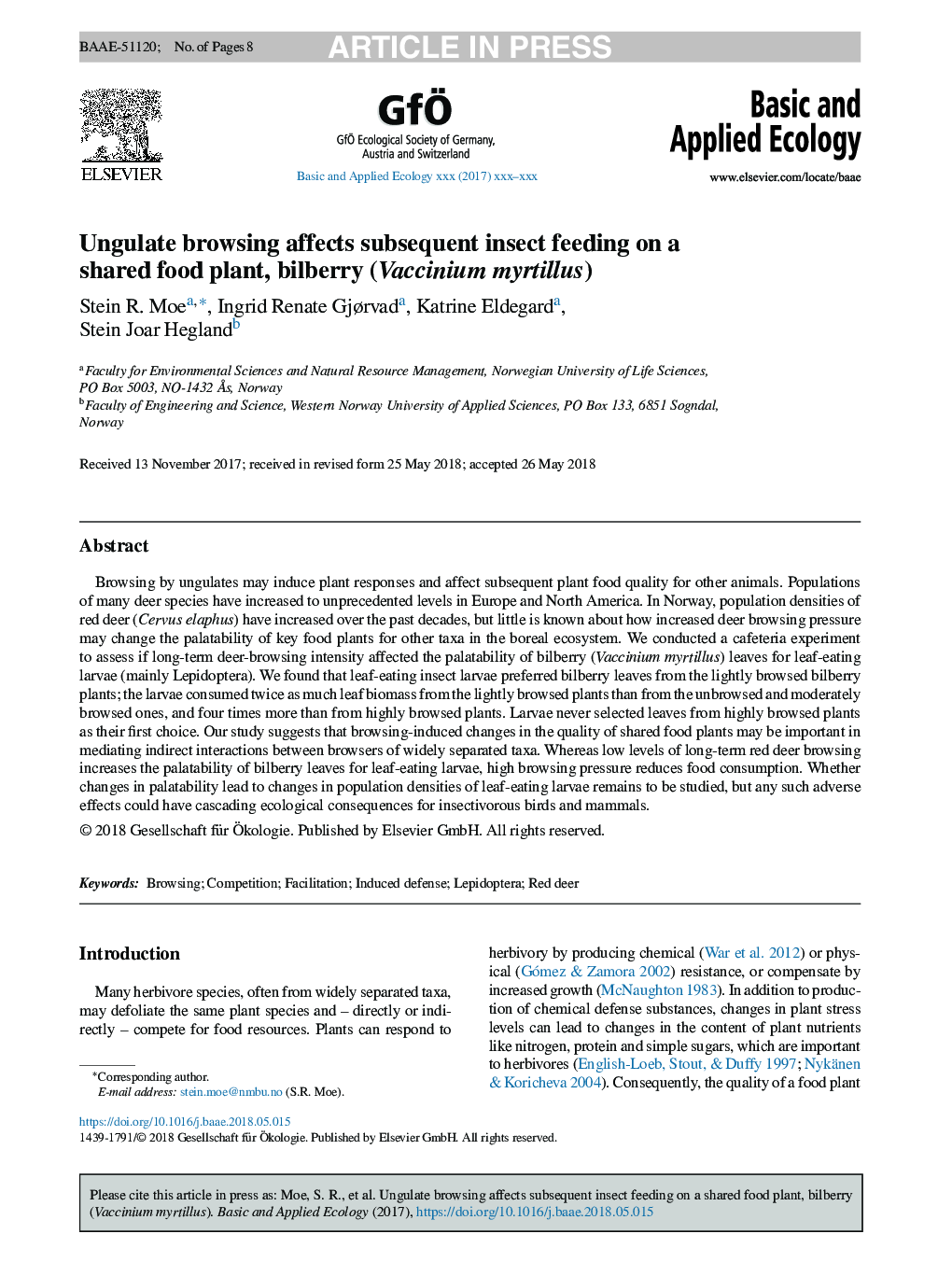| Article ID | Journal | Published Year | Pages | File Type |
|---|---|---|---|---|
| 10223334 | Basic and Applied Ecology | 2018 | 8 Pages |
Abstract
Browsing by ungulates may induce plant responses and affect subsequent plant food quality for other animals. Populations of many deer species have increased to unprecedented levels in Europe and North America. In Norway, population densities of red deer (Cervus elaphus) have increased over the past decades, but little is known about how increased deer browsing pressure may change the palatability of key food plants for other taxa in the boreal ecosystem. We conducted a cafeteria experiment to assess if long-term deer-browsing intensity affected the palatability of bilberry (Vaccinium myrtillus) leaves for leaf-eating larvae (mainly Lepidoptera). We found that leaf-eating insect larvae preferred bilberry leaves from the lightly browsed bilberry plants; the larvae consumed twice as much leaf biomass from the lightly browsed plants than from the unbrowsed and moderately browsed ones, and four times more than from highly browsed plants. Larvae never selected leaves from highly browsed plants as their first choice. Our study suggests that browsing-induced changes in the quality of shared food plants may be important in mediating indirect interactions between browsers of widely separated taxa. Whereas low levels of long-term red deer browsing increases the palatability of bilberry leaves for leaf-eating larvae, high browsing pressure reduces food consumption. Whether changes in palatability lead to changes in population densities of leaf-eating larvae remains to be studied, but any such adverse effects could have cascading ecological consequences for insectivorous birds and mammals.
Related Topics
Life Sciences
Agricultural and Biological Sciences
Animal Science and Zoology
Authors
Stein R. Moe, Ingrid Renate Gjørvad, Katrine Eldegard, Stein Joar Hegland,
